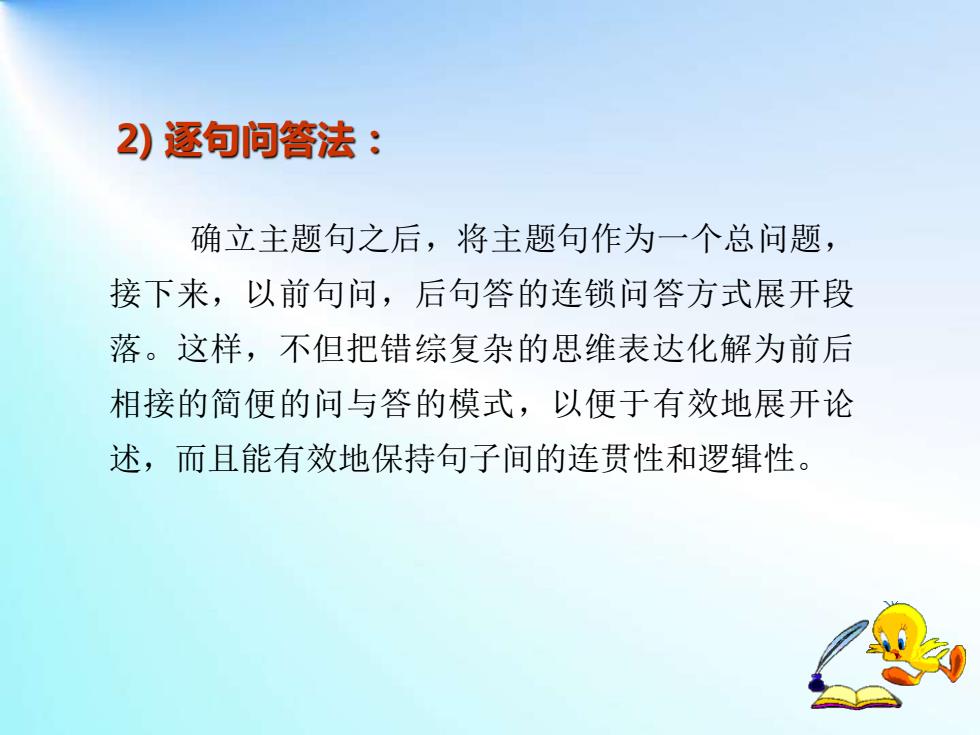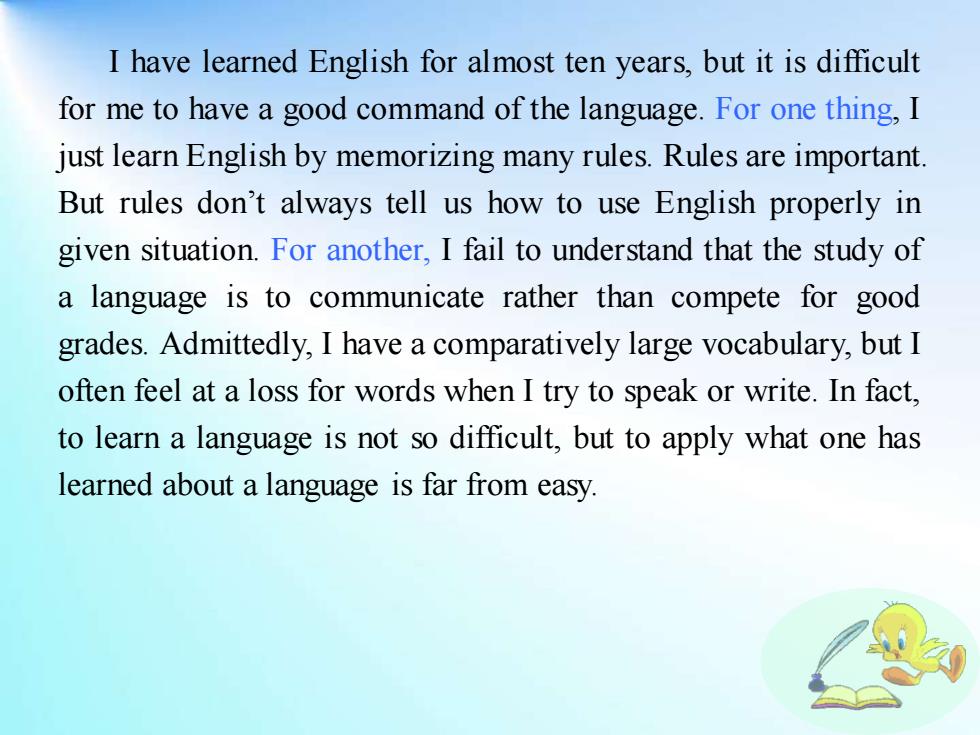
1)解答法根据给出的主题句或自己写出的主题句,先用why?或How?设问,然后把段落主题句作为一个总的问题以解释、讨论或描述的方式来给予解答。这样,写段落就变为回答问题
1) 解答法 根据给出的主题句或自己写出的主题句, 先用why? 或 How? 设问,然后把段落主题句 作为一个总的问题以解释、讨论或描述的方式 来给予解答。这样,写段落就变为回答问题

2)逐句问答法:确立主题句之后,将主题句作为一个总问题,接下来,以前句问,后句答的连锁问答方式展开段落。这样,不但把错综复杂的思维表达化解为前后相接的简便的问与答的模式,以便于有效地展开论述,而且能有效地保持句子间的连贯性和逻辑性
2) 逐句问答法: 确立主题句之后,将主题句作为一个总问题, 接下来,以前句问,后句答的连锁问答方式展开段 落。这样,不但把错综复杂的思维表达化解为前后 相接的简便的问与答的模式,以便于有效地展开论 述,而且能有效地保持句子间的连贯性和逻辑性

3)分项阐述法根据主题句提出的论点或话题从几个不同的角度围绕段落主题展开讨论,由此及彼,分门别类,不愁没有内容和缺乏说服力
3) 分项阐述法 根据主题句提出的论点或话题从几 个不同的角度围绕段落主题展开讨论, 由此及彼,分门别类,不愁没有内容和 缺乏说服力

4)两点法人们都习惯用一分为二的方法分析和看待事物。用这种方法来展开段落,既便于操作,也具有较强的逻辑性和说服力。例如:
4) 两点法 人们都习惯用一分为二的方法分析和看 待事物。用这种方法来展开段落,既便于操 作,也具有较强的逻辑性和说服力。例如:

I have learned English for almost ten years, but it is difficultfor me to have a good command of the language. For one thing, Ijust learn English by memorizing many rules.Rules are importantBut rules don't always tell us how to use English properly ingiven situation. For another, I fail to understand that the study ofa language is to communicate rather than compete for goodgrades. Admittedly, I have a comparatively large vocabulary, but Ioften feel at a loss for words when I try to speak or write. In fact,to learn a language is not so difficult, but to apply what one haslearned about a language is far from easy
I have learned English for almost ten years, but it is difficult for me to have a good command of the language. For one thing, I just learn English by memorizing many rules. Rules are important. But rules don’t always tell us how to use English properly in given situation. For another, I fail to understand that the study of a language is to communicate rather than compete for good grades. Admittedly, I have a comparatively large vocabulary, but I often feel at a loss for words when I try to speak or write. In fact, to learn a language is not so difficult, but to apply what one has learned about a language is far from easy